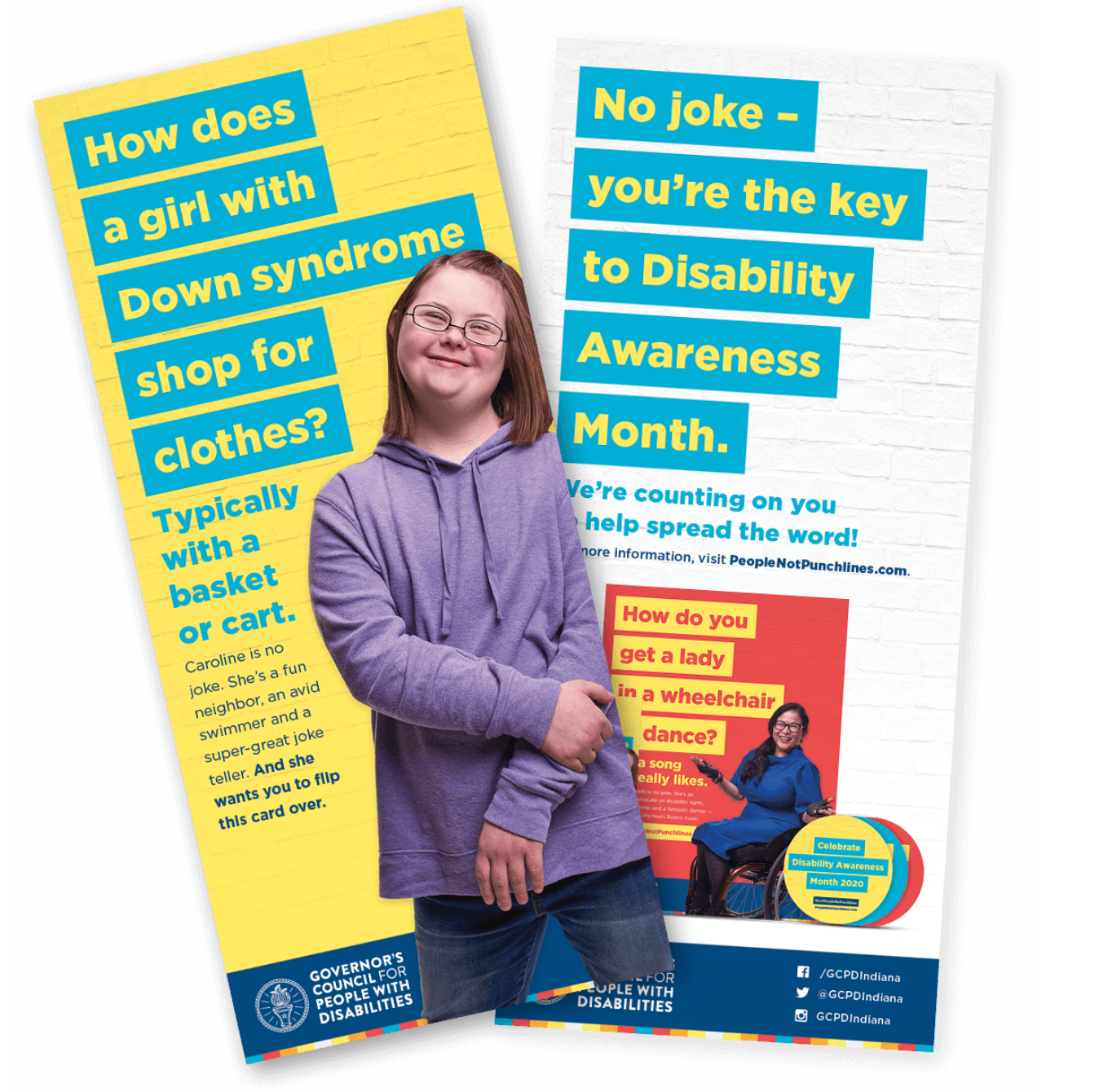“Two deaf guys walk into a bar.
They enjoy their drinks and leave a generous tip.”
Ba-dum-tsh.
This clunker of a non-joke was the kernel of an idea that made all of us a little uncomfortable.
But it also convinced us we were on to something.
People, Not Punchlines
The Indiana Governor’s Council for People with Disabilities
Toward the end of 2019, as we met with our long-time client the Indiana Governor’s Council for People with Disabilities (GCPD), we looked ahead to the then-upcoming 30th anniversary of the landmark Americans with Disabilities Act (ADA). It was right around the corner. And by the time that anniversary came in March, which is also Disability Awareness Month, the Council wanted to have something ready to share that would get people’s attention.
Our goal: Create a campaign as daring as the folks we’re featuring. We found seven individuals – eight if we count Middleton, the service dog – living with disabilities and fighting for the rights of others. We shared their stories, including the ugly fact that people with disabilities are sometimes turned into objects of ridicule, but empowered these individuals to make that laughter their own… and to confidently express their own authentic identity at the same time.
The campaign was a success, despite having the rotten luck of launching at the outset of a global pandemic. It spread statewide, via digital and social, and reached more than 3 million people.
A personal note on the process of making this:
Interviewing these folks, particularly the effervescent and supremely self-confident disability-rights pioneer Jaimie Beck – was one of the great pleasures of my career. But initially presenting this concept to the Governor’s Council – 60% of whom must be, by law, people with disabilities or their direct family members – was one of the great terrors of my career. Over the years I’ve presented many types of ideas to many types of groups of people, both successfully and unsuccessfully. But never had I felt like there was so much at stake. I stood before them that morning, in a stuffy conference room at the Indiana Government Center downtown, and all but prayed they’d like the idea and not take offense. Sure enough, one of them did recoil, initially. She was the mother of a person with a disability, and stood up to say,
“Do we really want to tell jokes and call more attention to this? My son has already been made fun of enough.”
In one of the wiser moments of my decision-making history, I kept quiet and let the question hang in the air for a moment. Then, another board member, from the other side of the room, said, “Sharon, I think that’s why we should do this.” And we did.





